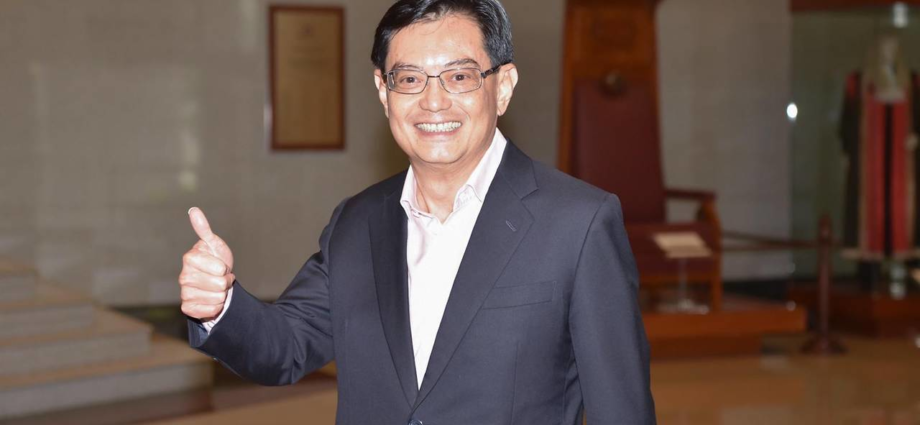Deputy Prime Minister Heng Swee Keat said on Thursday (17 October) that although it’s unreasonable to get the United States and China to solve their prolonged trade dispute in a few meetings, but if both the parties can somehow find a way to agree on several key areas first, it would be a crucial step to help restore global confidence.
However, he warned that the trade war between these both powerhouses impact negatively on the global economy, and Singapore will continue to be affected if the situation worsens.
“We are at a state of the global economy where there are significant weaknesses. We have been monitoring this very closely over the last few months already and there are a number of things we can do,” said Mr Heng while speaking to Singapore media in Beijing.
On Monday (14 October), the Singapore economy managed to narrowly escape technical recession as it grew 0.1% on a year-on-year basis in the third quarter of this year, based on flash estimates from the Ministry of Trade and Industry (MTI).
Yesterday, Enterprise Singapore released data showing that non-oil domestic exports fell by 8.1%, dropping only marginally less than the 9% in August.
Just a few days ago, the city-state also made the decision to reduce the pace of appreciation of the Singapore dollar slightly, in an attempt to prepare for worst.
However, Mr Heng, who is also the Finance Minister, asserted that no extraordinary measures are needed just yet to deal with the poor global economy.
“I do not see a need at this stage for any extraordinary measure. Budget 2020 is coming up in a few months’ time, and we will continue to monitor the state of the global economy, and there are many sectors in our economy that are still growing,” explained Mr Heng at the end of his four-day visit to China for a yearly top bilateral cooperation meeting.
In July this year, Mr Heng noted that the Government is all set with a stimulus package that’s meant to help Singapore workers and businesses, in case the economy takes a dive.
Focus on structural policies
The trade war has impacted not just the two biggest economies in the world, but it also affected global markets.
After the trade negotiators from the US and China reached a partial agreement recently, it opened up more hard-to-resolve issues.
Although a number of analysts remain doubtful on whether the two countries can eventually sign a deal, others see this as a good first step to bridge the divide.
In the Republic, its finance and insurance sectors are growing, as well as its information and communication technology industry. Mr Heng said that infrastructure projects can also be brought forward to give a helping hand for the construction industry.
“What we need to continue to focus on are structural policies that will put our economy on a very different trajectory, and there, the industry transformation maps we have launched are on important element of our structural policies,” he expressed.
Mr Heng also noted that he had a talk with Trade and Industry Minister Chan Chun Sing to plan out more extensive consultation with business leaders in the next few months, as they look at new measures to handle this transformation.
The Finance Minister’s trip to China had taken him Chongqing for the bilateral cooperation summit that looked at nine deals. He also made his way to Tianjin where he visited Singapore’s second inter-government project – Tianjin Eco-city, as well as to Beijing to meet Vice-President Wang Qishan and Vice-Premier Liu He.
Mr Liu is China’s lead negotiator in the ongoing trade talks with the US.
“Premier Liu and I shared many common views on how we need to all restructure our economy and how we need to find opportunities to grow with one another, and I think he is taking a very positive approach in this with the US as well, and I hope that there can be an early resolution for some parts of the disagreement,” said Mr Heng.

